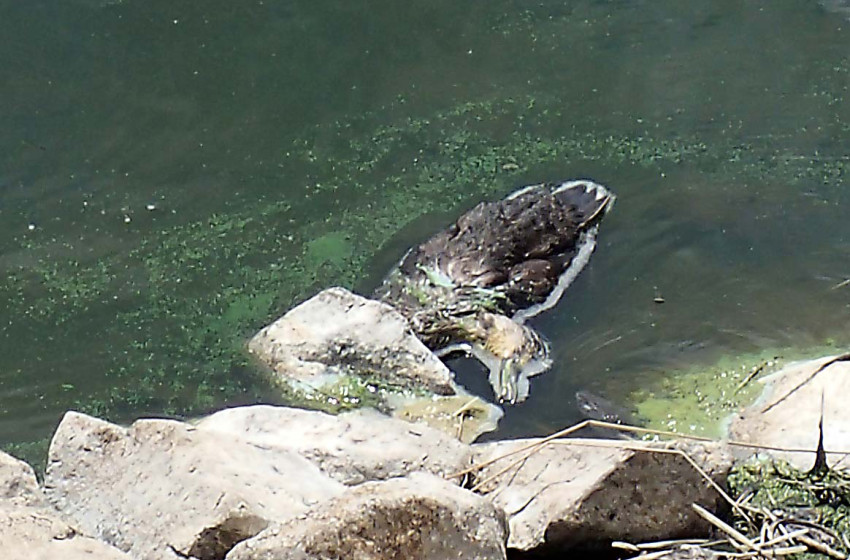Deadly botulism outbreak kills scores of birds at Te Aroha Wastewater Treatment Plant
- 26/01/2018
- Richie Cosgrove

A Waikato district council is being accused of failing to follow its own management plan to contain the deadly bird disease botulism after dozens of waterfowl died on its wastewater treatment ponds.
Avian botulism can paralyse and kill birds and outbreaks are often sparked by warm temperatures and water with low oxygen content.
Auckland-Waikato Fish and Game staff discovered the botulism at the Te Aroha Waste Water treatment plant after being alerted by a concerned member of the public.
The treatment plant is owned by the Matamata Piako District Council.
Fish and Game’s Auckland Waikato Southern Game Bird Manager David Klee says the situation he was confronted with at the treatment plant was grim.
“I counted at least 50 duck carcases in various stages of decomposition. I would guess that some of these birds have been dead for over a month,” Mr Klee says.
“There were a number of other birds which were barely alive and exhibiting the later stages of paralysis, a classic botulism symptom. A few could barely keep their heads above the water as the muscles in their necks started to give up.”
David Klee says the real death toll was likely to be greater than what he could see.
“This is likely to be the tip of the iceberg, I’m sure a thorough search of the treatment plant would reveal many more dead birds and lots would have been picked off by hawks and other scavengers,” Mr Klee says.
Worried by what he had seen, David Klee visited a valuable nearby wetland in case botulism-infected birds had flown there.
“The Howarth Memorial Wetland is only a couple of kilometres away from the treatment ponds and is home to a huge array of water birds. My worst fears were realised when I discovered more carcasses and birds dying from botulism,” he says.
“Botulism is an indiscriminate killer and protected indigenous species live in the area. In the past, we have had endangered species such as brown teal and bittern succumb.
“This makes me pretty angry to be honest. We work hard to get Councils to take their responsibilities seriously and had Matamata Piako followed its own botulism management plan as soon as the outbreak started, we may have been able to stop it from reaching the size and scale it is now,” David Klee says.
Mr Klee says the wastewater treatment site has a history of botulism outbreaks so when its operating consent came up for renewal, Fish & Game required a botulism management plan to be inserted into its operating conditions.
“The thing that makes this even more disappointing is that Matamata Piako District Council is only too aware of this problem. Despite the consent having a botulism management plan, it’s clear from what I have seen that no attempt has been made to follow it.”
David Klee has taken the issue up with the Waikato Regional Council.
“I reported what I found to Regional Council compliance officers - ironically, they’d just been told by the District Council there were no issues at Te Aroha and no birds on the ponds.
“Apparently, an inspection had been held the day before and didn’t find any dead birds. I find that hard to believe given you’d have to be blind not to see the dead birds lying around the pond,” Mr Klee says.
David Klee says the Regional Council is required to enforce the wastewater plant’s operating conditions and he will be discussing the issue with relevant council staff.